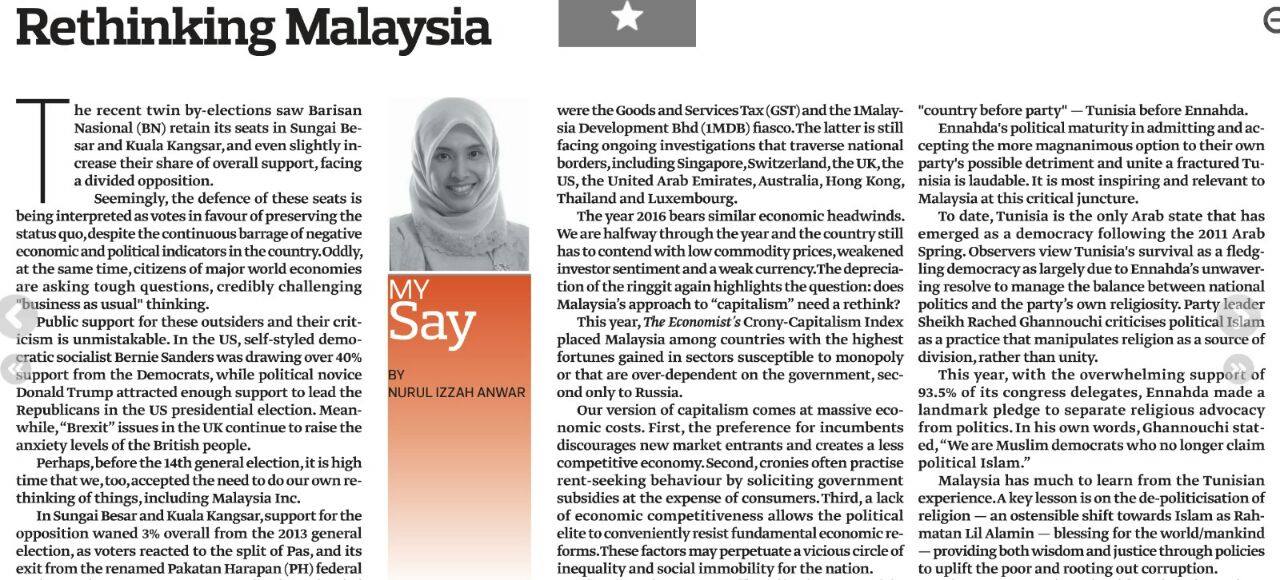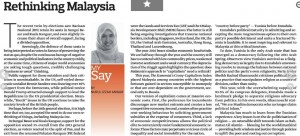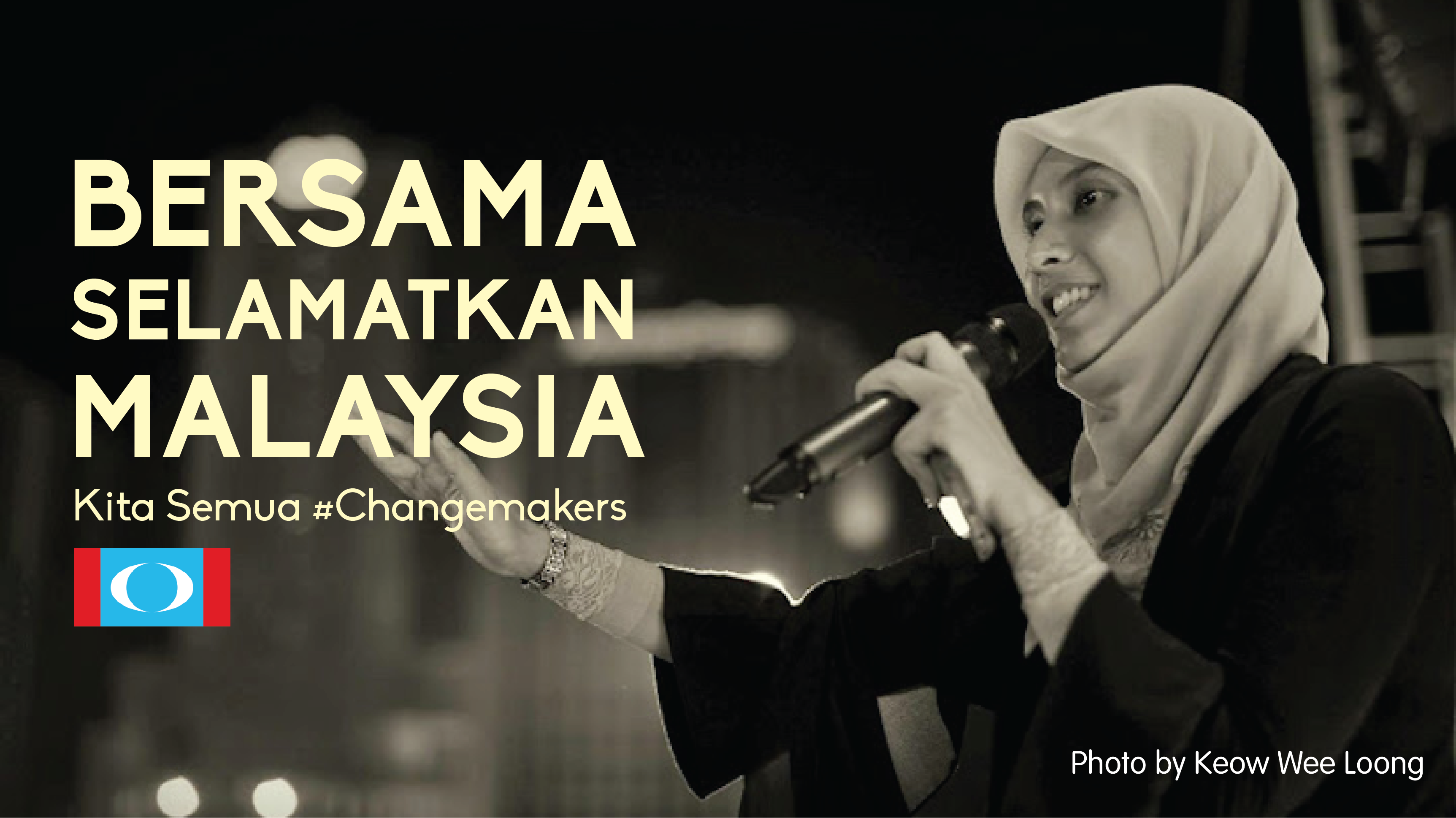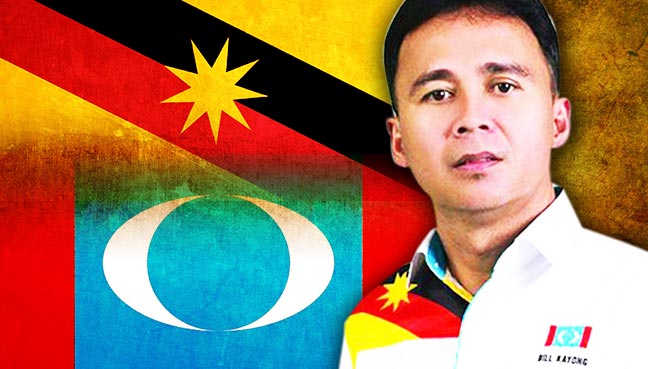Last weekend’s twin by-elections saw Barisan Nasional retain its seats in Sungai Besar and Kuala Kangsar, and even slightly increase their share of overall support facing a divided opposition. Seemingly, the defense of these seats is being interpreted as votes in favor of preserving the status quo, despite the continuous barrage of negative economic and political indicators in Malaysia. Oddly, at the same time, citizens of major world economies are asking tough questions credibly challenging “business as usual” thinking.
The public support for these outsiders and their criticism is unmistakable. In the US, self-styled democratic socialist Bernie Sanders was drawing over 40 percent support from Democrats, while political novice Donald Trump attracted enough support to lead the Republican field.[1] Meanwhile, a potential ‘Brexit’ in the UK raised anxiety levels as potentially 50 percent of British voters were considering leaving the European Union just days before the referendum.[2]
Perhaps before GE14, it is high time that we too must fully accept the need to rethink ‘Malaysia Inc’.
In Sungai Besar and Kuala Kangsar, support for the opposition waned 3 percent overall from the 2013 General Elections, as voters reacted to the split of PAS, and its exit from the renamed Pakatan Harapan (PH) federal coalition.[3] This was a stinging reminder that a divided opposition in GE14 cannot win, and it is a warning that if uncorrected, the situation will sentence the people of Malaysia to many years more of the economic status quo of BN’s increasingly risky model of capitalism.
Key economic data show that the government’s management of the economy is already facing headwinds. According to the Malaysian Institute of Economics Research (MIER), business confidence in the first quarter is already down 8 percent, at only 92.9 this year compared to 101 for the same quarter in 2015.[4] More recently, MIDF Amanah Investment Bank alerted us of an uncharacteristic capital outflow from Malaysia, as foreign investors sold a net RM3.9 billion of local shares within five weeks from the end of April.[5]
While it is understandable that fund managers move money in and out of markets all the time, what is driving the loss of confidence in Malaysia and exodus from our market?
2015 was a tough ride for Malaysia. The chief economic concerns in 2015 for average Malaysians were the GST and the 1Malaysia Development Berhad (1MDB) fiasco. The latter is still facing ongoing investigations that traverses national borders. The last count includes investigation agencies hailing from Malaysia, Singapore, Switzerland, the United Kingdom, the United States, the United Arab Emirates, Australia, Hong Kong, Thailand and Luxembourg.[6]
2016 bears similar economic headwinds too. We are halfway across the year, and the government still has to contend with low commodity prices, and weakened investor sentiment, resulting in a loss of confidence in our currency.[7] The aggravated depreciation of the ringgit again highlights the question: does Malaysia’s approach to ‘capitalism’ need a rethink?
This year, The Economist’s crony-capitalism index placed Malaysia among the ranks of countries with the highest fortunes gained in sectors susceptible to monopoly or over-dependent on the government, second only to Russia.[8]
Our version of capitalism comes at massive economic costs. First, the preference for bigwig incumbents discourage new market entrants and create a less competitive economy. Second, cronies often practice rent-seeking behavior by soliciting government subsidies at the expense of consumers. Third, lack of economic competitiveness allows the political elite to conveniently resist fundamental economic reforms. These factors may perpetuate a vicious cycle of inequality and social immobility for the nation.[9]
Critical ideas and fresh thinking are tolerated at neither outside nor within the government to push for economic vibrancy, let alone meaningful economic reforms.
Still, many continue to yearn for more. They include Malaysians who are afflicted by the current debt crisis – as household debt-to-GDP ratio increased to 89.1 percent as of 2015 from 86.8 percent.[10] Our household debt to GDP ratio is the highest among ten Asian countries.[11]
For more to happen, we need to set the national conversation right. Instead of staying entrenched in polemics that are decades old, we should push instead for policies and legislations that are consistent with promoting collective harmony, political pragmatism, and global integration. Failure to have social and economic reforms predicated on these goals derails Malaysia from being a competitive force in the global marketplace.
With regards to rethinking ideas, one of the striking experiences I had during a recent visit to Tunisia that was a slogan that was used repeatedly during the nation’s largest Islamic party congress. Their rallying call was, “country before party” – Tunisia before Ennahda. Ennahda’s maturity in admitting and accepting the more magnanimous option to their own party’s possible detriment, and unite a fractured Tunisia is laudable. It is most inspiring and relevant to Malaysia at this critical juncture.
To date, Tunisia is the only Arab state that has emerged as a democracy following the 2011 Arab Spring. Observers view Tunisia’s survival as a fledgling democracy much due to Ennahda’s unwavering resolve to manage the balance between national politics and the party’s own religiosity. Party leader Sheikh Rached Ghannouchi criticizes political Islam as a practice that manipulates religion as a source of division, rather than unity.
This year, with the overwhelming support of 93.5 percent of its congress delegates, Ennahda made a landmark pledge to separate religious advocacy from politics.[12] In his own words, Ghannouchi stated, “We are Muslim democrats who no longer claim political Islam.”[13]
Malaysia has much to learn from the Tunisian experience. A key lesson is on the de-politicisation of religion – an ostensible shift towards Islam as Rahmatan Lil Alamin – providing both wisdom and justice, through policies to uplift the poor, rooting out corruption. Islam must never be utilised as political expediency. When religion is leveraged as a powerful political tool, this sidelines our means to politicise issues that are not of economic or social importance.
An Islamic Party in Tunisia has elicited the world to rethink the role of religion in politics. But this does not make Islam any less relevant nor diminish the importance of Islam. In fact, freedom, justice, democracy and the rule of law are rightfully consistent with the values that Islam espouses. We need to engage in direct conversations on how to tie these various values together to achieve an equitable Malaysia – and perhaps right what’s wrong with status quo – politically, economically and socially.
In this regard, decades old polemics should effectively be left in the past, as we move to rethink Malaysia Inc.
Nurul Izzah Anwar
Member of Parliament, Lembah Pantai
Vice President & Election Director, People’s Justice Party (KEADILAN)
________________
[1] https://morningconsult.com/2016/04/18/bernie-sanders-hillary-clinton-democratic-presidential-poll/ [2] http://whatukthinks.org/eu/opinion-polls/poll-of-polls/ [3] https://www.malaysiakini.com/news/345792 [4] http://www.tradingeconomics.com/malaysia/business-confidence [5]http://www.straitstimes.com/business/companies-markets/1mdb-scandal-taking-toll-on-malaysia-stock-market-as-foreigners-sell [6] http://www.bloomberg.com/graphics/2016-malaysia-1mdb/ [7]http://www.mida.gov.my/home/3024/news/malaysia-remains-an-attractive-proposition-/ [8]http://www.economist.com/news/international/21698239-across-world-politically-connected-tycoons-are-feeling-squeeze-party-winds [9] https://www.ced.org/pdf/Embargoed_Report_-_Crony_Capitalism.pdf [10]http://www.thestar.com.my/business/business-news/2016/04/02/household-debt-on-the-rise/ [11] http://www.mas.gov.sg/~/media/resource/publications/fsr/FSR%202015.pdf [12]http://www.aljazeera.com/news/2016/05/left-tunisia-ennahda-party-160526101937131.html [13] https://www.wilsoncenter.org/article/ennahda-gives-political-islam






